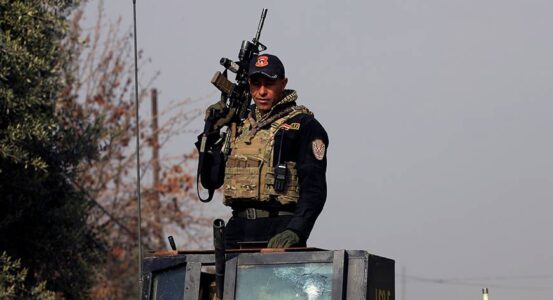
The rise of Islamic State terror attacks in Iraq shows group’s resurgence
There are growing indications that ISIS is trying to make a comeback in Iraq after a sharp rise in attacks in recent days, a senior Kurdish official said.
At least 18 members of Iraqi and Iraqi Kurdish security forces were killed recently across the country, according to military and security officials, prompting calls from Iraq’s president for vigilance against the threat of a resurgent ISIS.
The attacks came after Baghdad’s deadliest suicide bombing in three years, claimed in January by the militant group, and amid fears that a reduction of US-led forces could upset stability.
“It seems like [ISIS] have re-organised,” Lahur Talabany, co-president of the Patriotic Union of Kurdistan party and a former intelligence chief, told Reuters.
Originally an offshoot of Al Qaeda, ISIS took large areas of Iraq and Syria from 2014, imposing a reign of terror with public beheadings and attacks by supporters abroad.
ISIS was declared militarily defeated in 2017 but has since waged a steady insurgency across parts of northern Iraq and a porous border with neighbouring Syria.
In recent months there were more than 25 deadly attacks that Iraqi officials attribute to ISIS militants.
The January bombing of a crowded Baghdad market killed more than 30 people.
Mr Talabany said ISIS had never been completely eliminated.
He said there were still several thousand ISIS militants operating in Iraq. Some western military officials say the number operating between Iraq and Syria could be more than 10,000.
Mr Talabany is alarmed at the ability of ISIS to recruit, including through social media.
Three weeks ago, 38 ISIS recruits, all Kurds between the ages of 20 and 22, were arrested, he said.
“They were about to carry out attacks, they received equipment and bombs and explosives. This was a wake-up call,” Mr Talabany said.
His concerns are shared by Iraqi leaders.
President Barham Salih said on Twitter last week that the country “cannot afford to be complacent” in combating ISIS militants.
A lack of co-ordination between the Iraqi military and forces belonging to the autonomous Kurdistan region is blamed for some security failures.
The two sides fought against ISIS but relations have deteriorated since a failed Kurdish bid for full independence in 2017, halted militarily by Baghdad.
Territory disputed by both sides is fertile ground for ISIS to operate in, Mr Talabany said.
“Lack of co-ordination between Erbil [the Kurdish capital] and Baghdad led to ISIS re-emerging and getting stronger and being more operational and capable,” he said.
The US reduced its forces from about 5,000 – deployed to help combat ISIS – to half that number in the past year.
As the military coalition that Washington leads reduces its numbers in Iraq, Nato is expected to fill the gap in training and co-ordination with Iraqi forces, but is not mandated to take part in combat operations.
Iran-backed Shiite militias, which have become the chief adversary of the US in Iraq since the defeat of ISIS, demand the complete withdrawal of US forces, something they have pushed for more aggressively since the United States killed Iranian military leader Qassem Suleimani last year.
Mr Talabany said he feared the implications of a US military drawdown. The United States withdrew troops from Iraq in 2011, leaving security gaps that the militants were able to exploit.
Source: The National News





